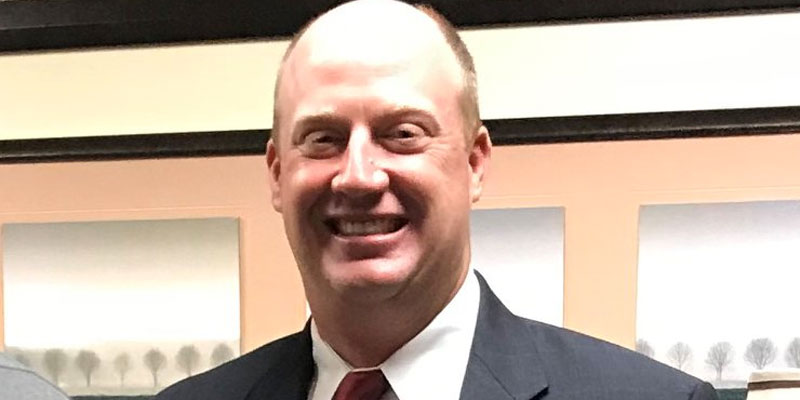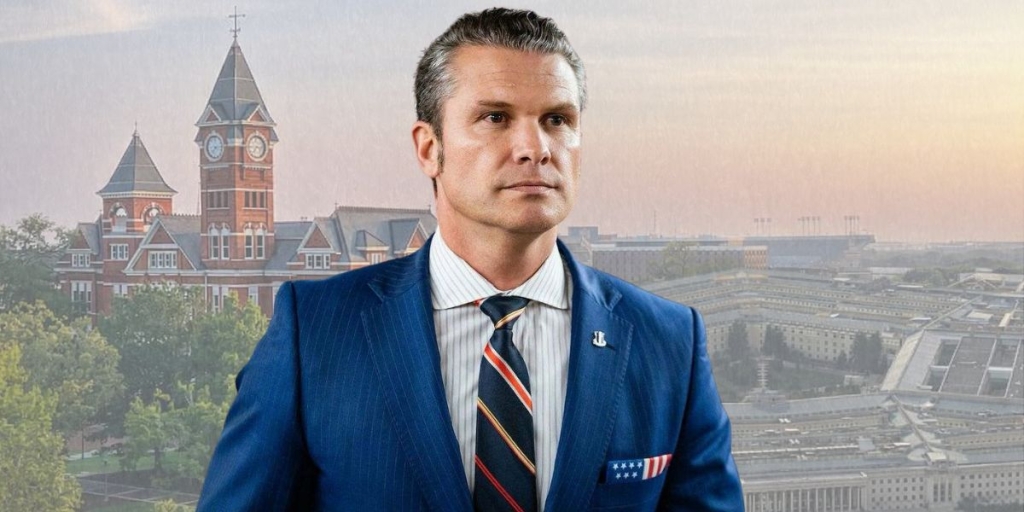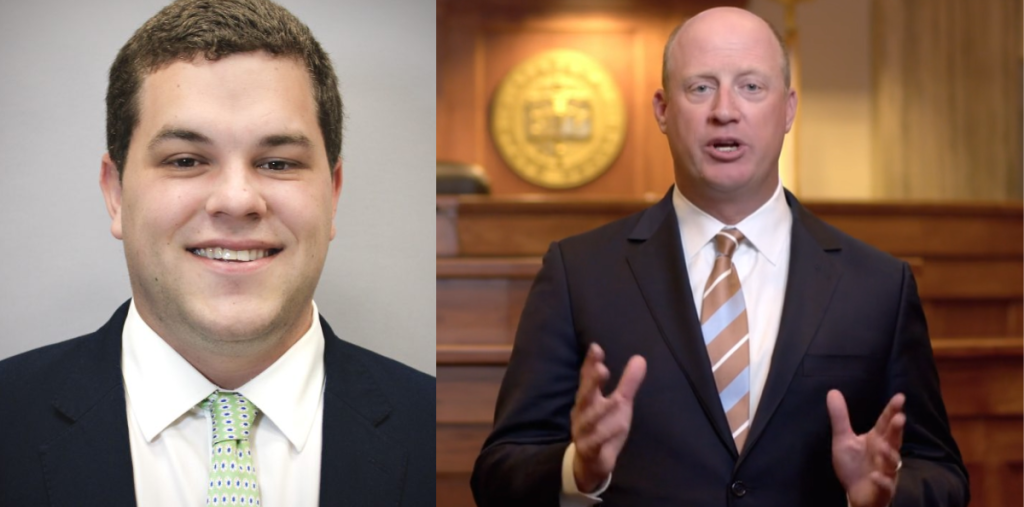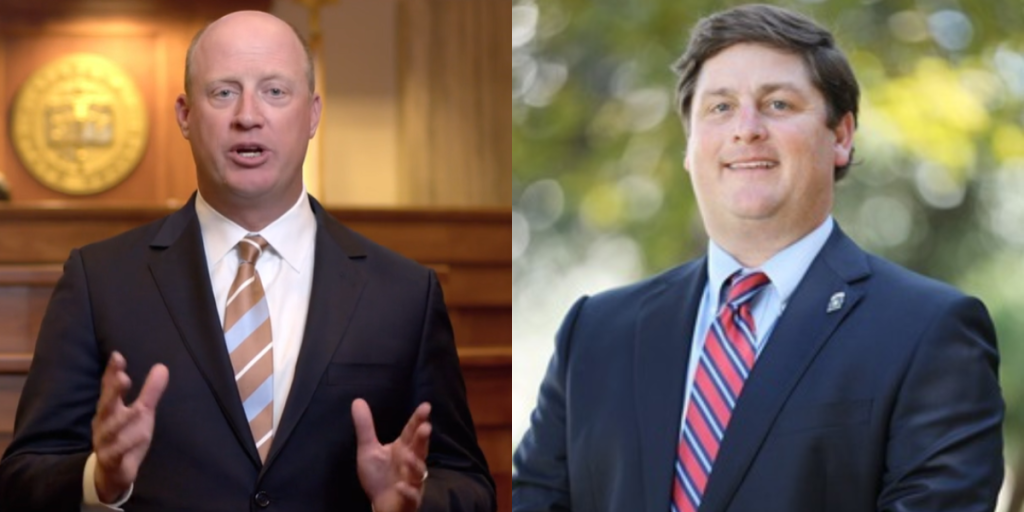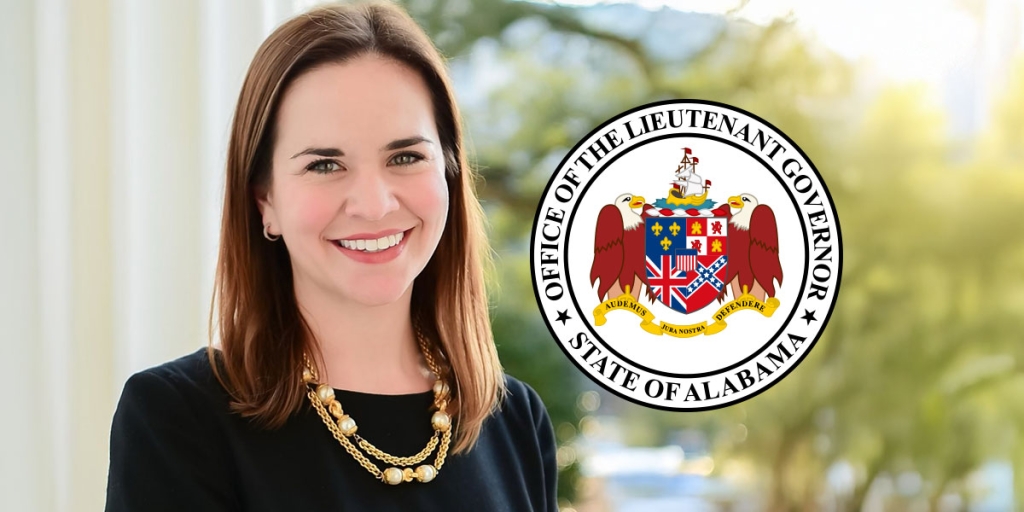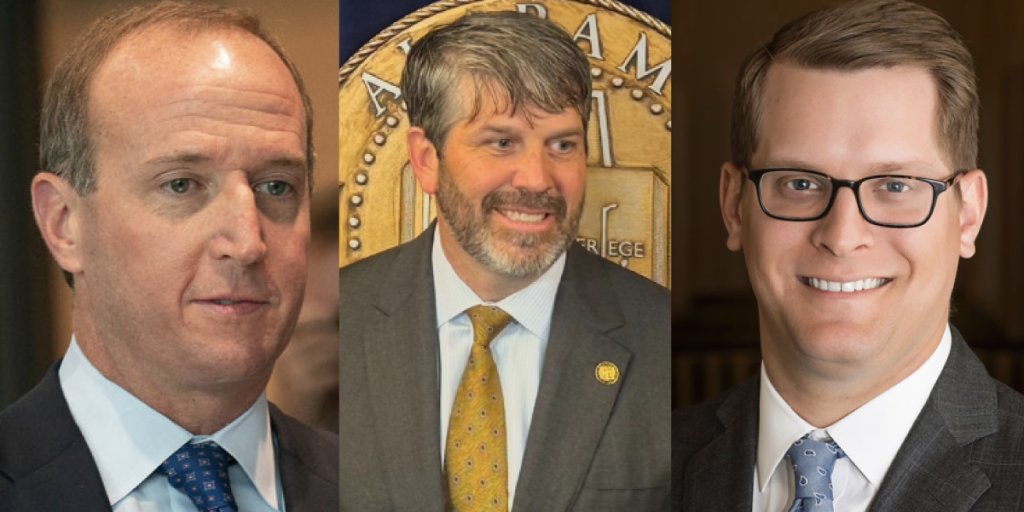State Rep. Will Ainsworth, a candidate for the Republican Party’s nomination for lieutenant governor, recently responded to a questionnaire from the Alabama Policy Institute and Yellowhammer News. His responses are below:
POLITICAL PHILOSOPHY AND PRINCIPLES
Question: What is your political philosophy and, if elected, how would it shape the way you lead as lieutenant governor?
Ainsworth: I am a deeply committed Christian Conservative, and my faith-based political philosophy guides all of my thoughts and decisions as a public servant. I am also a straight shooter who opposes political double-talk and believes that the flawed doctrine of political correctness is a direct threat to the basic freedoms and liberties that our U.S. Constitution guarantees us.
How have you demonstrated your commitment to your political philosophy?
I am not a career politician. I am currently serving my first term in the Alabama House, and my actions in office demonstrate my commitment to conservative principles. During the past four years I have focused my efforts on sponsoring term limits and recall legislation, championing pro-life measures, defending against liberal attacks on the Second Amendment, and fighting against federal intrusion with a 10th Amendment approach.
Unlike another candidate for lieutenant governor who campaigned in favor of Bob Riley’s massive Amendment One tax increase, I have worked with a group of fellow House conservatives to kill more than $1 billion in taxes over the past four years. When Robert Bentley broke a re-election campaign promise by proposing almost $800 million in new taxes, I was among the first lawmakers to point out his deception and oppose his wrong-headed effort.
What should be the role of the lieutenant governor?
According to the 1901 Constitution, the lieutenant governor is responsible for presiding over the State Senate and stepping in if a governor leaves office, but I believe the office can be expanded to include other roles. As the second highest ranking constitutional officer in the state, the lieutenant governor has a natural bully pulpit that can be used to promote ideas, reforms, and policies that should be considered. Because the lieutenant governor runs separately from the governor – unlike the president and vice president – these initiatives may be completely separate from those that the governor promotes.
I also believe that the lieutenant governor can play a much larger role in the economic development efforts of the state. Responsibilities and duties require the governor to be largely tethered to the Capitol, but when the Legislature is not in session, the lieutenant governor may be utilized to meet with business leaders, foreign companies, and other prospects who show an interest in locating, investing, or expanding in Alabama.
What is the most challenging social issue facing families in Alabama? Does government have a role in helping to solve that problem, and if so, what would you propose?
I believe abortion is among the biggest social issues facing not only Alabama families but all people. Abortion is murder. Those three simple words sum up my position on the issue, which many falsely claim is a complex one.
My mother, Sharon, is the director of the Real Life Crisis Pregnancy Center in Marshall County, and she uses that role to stress adoption as the proper response to unwanted pregnancies. My father, Billy, is a man of deep and abiding faith who supports my mother’s mission and helped foster my relationship with Christ.
Earlier this year, I carried and passed legislation that provides a generous tax credit to families that adopt children whether in-state or out-of-state. It is my hope that this incentive will provide a stable home and a caring family to children who simply want to be loved.
As a state legislator, I helped pass a constitutional amendment that will appear on the November ballot and declares Alabama to be a pro-life state so that we may stand ready to take action as soon as the abomination known as Roe v. Wade is overturned by the U.S. Supreme Court.
When a surreptitiously recorded video showed representatives of Planned Parenthood cavalierly discussing the sale of unborn infant body parts as if they were a publicly traded commodity, my fellow lawmakers and I enacted the Unborn Infants’ Dignity of Life Act, which criminalizes such transactions in Alabama.
If we are going to win that war and preserve the traditional values and cornerstone morals upon which this nation was built, we must have leaders at all levels who have the courage to join the battle, the voice to win the debate, and the determination to keep fighting until victory is ours.
ETHICS
According to the Center for Public Integrity, Alabama receives a D+ gradefor integrity. When the state is in the national news, it is often because of a lack of ethical behavior by state officials or candidates. How would having you as Lieutenant Governor improve our state’s image nationally and, more generally, what suggestions do you have to ensure integrity throughout the state government?
Those who steal from others to enrich themselves are criminals whether they wear a ski mask in a bank or a suit and tie in the Alabama State House. That is why I spoke out against Mike Hubbard and Mickey Hammon and risked their punishment in return. As a member of the House Health Committee, I was also among the first signers of the Articles of Impeachment that were filed against Robert Bentley.
Far too often, career politicians lose their perspective, become numb to corruption, and fall prey to the temptations that the political systems offers. As a newcomer to public service, that is why I sponsored term limit legislation in the Alabama House, and it is why I’ll help ensure that politicians who engage in corruption will experience the inside of a jail cell.
During my term in the House, I have passed two ethics bills into law – one that strengthened the prohibition against double voting and another that tightened the revolving door barring public officials, state employees and others from resigning their jobs and immediately cashing in on their positions by becoming lobbyists.
As Lieutenant Governor, you will be responsible for appointing more than 400 people to state positions. How can Alabamians be sure that you will appoint qualified and experienced candidates and not simply supporters from current or previous electoral campaigns?
As I stated earlier, I am a devoted Christian Conservative who embraces a strict interpretation of the Constitution, free market ideas, and a faith-based political philosophy. I will seek out and appoint those who share these ideas, beliefs, and traits.
EDUCATION
PUBLIC EDUCATION
Alabama is ranked number forty-seven on U.S. News and World Report’s list of Best States for Education, and ranked number 1in Pre-Kindergarten quality. As far as public education reforms, there have been many suggestions for improvement including increased investment in STEM education, distance learning, and reforming teacher tenure. What reforms would you propose or support to improve public education and prepare Alabama’s children for school success and lifelong learning?
I witnessed firsthand the importance of Pre-K programs to a child’s development because my wife was a Pre-K teacher. That’s why I’ll work to expand Alabama’s nationally-recognized First Class Pre-K program throughout Alabama. I understand that exposure to voluntary Pre-K programs can often make the difference in whether a child later excels in school or falls behind.
Watching my wife, Kendall, work with the children in her Pre-K program opened my eyes to its importance in a child’s development. Studies have shown that if a child can read at grade level by third grade, they can maintain their progress until graduation, but if a child cannot read at level by that time, their chances of ever catching up drop dramatically. That’s why I want to expand Alabama’s voluntary First Class Pre-K program and give our children a jump start when it comes to learning. Believe it or not, Pre-K programs can pay dividends years later in terms of having a prepared workforce that can fill 21st Century jobs.
I want to place an emphasis on funding for career technical training and expanding its potential in our schools. It’s a fact that not every child is going to go to college, and we need to make sure that those who don’t are adequately prepared to enter the workforce upon graduation, and career technical training is the key to that goal. Even students who do attend college benefit from acquiring the skills that career tech can provide them in high school. Schools in Marshall County, where I live, already offer programs in areas like cyber security and IT, and public school officials tell me there is a desperate need for advanced robotics courses, as well, but we lack the necessary equipment. Training in the traditional trades also provides much-needed skills to fill the long-standing jobs that fewer and fewer individuals are prepared to fill. Emphasizing, encouraging, and funding career technical training will greatly benefit our economic development efforts.
If we really want to have the best schools in the country, we need to pay our educators like we want to have the best schools in the country. It’s time we put as much emphasis on being successful in the classroom as we do on being successful on the football field, and the first step toward that goal is paying our teachers a wage that recognizes their efforts.
EDUCATIONAL CHOICE
In 2015, Alabama became the 43rd state to approve legislation to authorize charter schools. Many states now allow parents to transfer their child from a failing public school to a non-failing public school, to utilize education savings accounts or school vouchers, or to send students to alternative schools using tax-credit scholarships, allowing parents greater control in their child’s educational endeavors. How should educational choice fit into Alabama’s education system?
Charter schools and the Alabama Accountability Act in its current form are not one-size-fits-all solutions to our education problems. The Accountability Act doesn’t work for my home county of Marshall, for example, because we do not have the infrastructure to support it, and since our schools already perform well, we simply don’t need it.
Charter schools, school choice, and similar ideas may work well in inner city school systems or underfunded systems, but they do not work well in areas where educators are succeeding and positive results are being produced. We must find solutions to endemic public education problems, but we must not enact politics that harm areas where schools are performing well in an attempt to help areas where schools are failing.
FISCAL RESPONSIBILITY
TAX CODE
In Alabama, the bottom 20% of earners pay 10% of their income in state and local taxes while the top 1% only pays 3.8% of their income in the same taxes. If elected, what would you propose be the future of the state income tax and do you see this disparity as a problem?
The disparity you note is not related to Alabama’s income tax, but, rather, the state’s reliance on sales taxes for revenue. Because the drafters of the 1901 Constitution smartly required most tax increases to be ratified by voters, career politicians and special interests have largely relied on raising one of the few taxes that doesn’t require public approval – sales taxes. As a result, more than 90% of Alabamians live in areas with total sale taxes of at least nine cents on the dollar. The solution is to elect public officials like me who not only oppose new taxes but seek to cut them whenever possible.
Alabama currently collects enough revenue to meet our needs and provide essential services, but our state government lacks the flexibility to shift money to meet emergencies and unexpected challenges.
In years past, whenever a new tax was approved, its proceeds were earmarked for one specific purpose or another. Some of these earmarks are constitutional, which means the voters, in their wisdom, dedicated the taxes to an agency, initiative, or spotlighted need during referendum elections.
Many of Alabama’s statutory earmarks, however, were put in place many years ago through back room bargains between lobbyists and long-retired politicians who no longer roam the State House halls. Removing these earmarks will allow us to avoid new taxes and set priorities based on need, not on decades-old, money-hoardingschemesthat lobbyists locked into our budgets.
At 91 percent, we have the highest percentage of earmarked tax dollars in the nation. The national average is just 24 percent, and the next highest state behind Alabama is Michigan with 63 percent. Rhode Island is the lowest in the United States with only 4 percent of its tax revenues being earmarked.
Attempting to raise taxes without first addressing earmarking is like pouring water into a bucket that has a large hole in the bottom of it. No matter how much water you pour, the bucket is never going to fill up. That is why I sponsored legislation that attempted to plug the hole in the bottom of the bucket first and prevent any more trips to the taxpayers’ well.
My bill would have removed the statutory earmarks that exist in our code, which would allow us the freedom to budget like families gathered at the kitchen table – placing our bills on one side, our income on the other, and setting priorities that meet critical needs while living within our means.
Unfortunately, the same special interests that carved out those earmarks and the career politicians that do their bidding united against my legislation. If elected, I plan to use the bully pulpit of the lieutenant governor’s office to make another push for commonsense, conservative unearmarking legislation.
STATE AND LOCAL TAXES
According to the Institute for Taxation and Economic Policy, Alabama boasts the 12th most regressive state and local tax system in the nation. One contributor to this ranking is our combined 9% grocery tax (only four states tax groceries more than Alabama). In 2017, Governor Bentley proposed decreasing the grocery tax by 4%. If you are elected, would you suggest changes to the grocery tax?
I think the premise of your question is misleading because only 4% of the sales tax on groceries is controlled by the state, and the rest is levied by cities and counties at various levels. In addition, Bentley proposed decreasing the grocery tax as part of his roughly $800 million tax increase proposal, which would have been a massive mistake to enact.
I support removing the grocery tax, but liberals have called for accomplishing this by repealing Alabamians’ ability to deduct their federal income taxes from their state taxes, which, in my opinion, would result in an overall tax increase on working families and allow income that taxpayers already sent to the federal government to be unfairly double-taxed by the state.
For any repeal effort to work, the state must prohibit cities and counties from raising taxes on groceries after the state has reduced them, or at least require a local referendum to be approved beforehand.
INFRASTRUCTURE INVESTMENT
US News ranks Alabama’s roads and bridges as the 16th and 21st best in the country, respectively. Even so, every neighbor of ours—except Mississippi – has roads and bridges that rank in the top 10. Alabama also ranks 45th in terms of broadband access. If elected, what would you prioritize as the most important infrastructure investment projects, and what innovative options would you propose to fund such projects?
My transportation plan includes close examination of the steps our sister southeastern states have already taken to resolve their infrastructure issues and mimicking their successes while avoiding their pitfalls.
Reducing regulations, implementing cost-cutting measures, and reexamining overly-cautions environmental mandates could dramatically reduce construction costs and help us put our money into asphalt instead of bureaucracy.
Public/private partnerships, which allow the private sector to carry the majority of construction and maintenance costs, are another area worthy of exploring.
Utilizing groundbreaking technologies in the roadbuilding industry can also cut costs in the long-term and save millions of taxpayer dollars that can be reinvested in roadways.
New high-density mineral bonds in asphalt, for example, can be used to repel the moisture and ultraviolet light rays that are major contributing factors in the cracking, raveling, and deterioration of our streets, highways, and interstates.
By implementing our sister states’ models, innovative approaches, conservative policies, and new technologies, I remain confident we can provide Alabama’s citizens and businesses with the quality transportation system that they deserve.
STATE-RUN LOTTERY
Most states resort to installing a state-run lottery to increase revenue and pay for government projects. Do you support a lottery to solve the state’s fiscal woes? Why or why not?
I personally oppose a lottery because it preys on the poor, erodes our morals, and embraces risky fiscal policy. Because a constitutional amendment goes straight from the Legislature to a vote of the people and by-passes the governor’s desk, neither the governor, nor certainly the lieutenant governor, can block one in any case.
FEDERAL DEPENDENCY
Alabama is currently the fourth most federally dependent state in the country. What do you think should be the federal government’s role in our state finances?
Our taxes fund the federal government, so to say that Alabama taxpayers are dependent on the federal government is a misnomer. It is more proper to say that the federal government is dependent on Alabama taxpayers. I believe our state should demand every dime we can get back from the federal government, but I would prefer that it comes here with a no-strings-attached policy. Federal block grants with absolutely no mandates would be the preferable form.
THE RIGHT TO WORK
JOB CREATION
The Census Bureau suggests that Georgia, Florida, and Tennessee are creating more jobs than Alabama. As lieutenant governor, how would you foster job creation that rivals our neighbors to the north, east, and south?
Census Bureau records may not be the best measure because in terms of per capita creation, Alabama is more than holding its own. In fact, we currently have the lowest unemployment rate in state history and are running close to the point of having more jobs available than qualified workers who can fill them.
Toyota/Mazda, Polaris, Remington, Hyundai, Honda, Airbus, Boeing.
These are just a few of the dozens upon dozens of new and expanding industries that have chosen to locate in Alabama and provide jobs and opportunity to our citizens in recent years.
It is no secret that Alabama continues to lead not only the southeast, but the entire nation, in economic development categories across the board, and the state’s Department of Commerce could fill a room with all of the “Silver Shovel” awards and other industrial recruitment honors it has captured over the past few decades.
But if we are going to continue our forward progress and provide even more jobs, hope, and security to Alabama’s families, our attention must begin to focus upon ensuring our workforce is prepared to fill 21st Century jobs.
Career tech in our K-12 system, as I noted in the response to your education reform question above, is certainly a firm foundation upon which we can build our economic future. Expanding and enriching workforce development opportunities is our community college system is another integral part.
And, as I also noted above, I plan to be an active lieutenant governor who is deeply involved in the economic development and industrial recruitment efforts of the state. As a businessman, I make my living in sales, and Alabama’s economic success story is certainly a product that is easy to promote to prospects.
ROLE OF LABOR
Alabama is a right-to-work state. In your opinion, what is the proper role of organized labor and should Alabama remain a right-to-work state?
Voters spoke loudly and clearly on this issue when they approved a constitutional amendment permanently declaring Alabama a “right to work” state, and as a member of the House, I was proud to help place that measure on the ballot.
OCCUPATIONAL LICENSING IN ALABAMA
The state of Alabama licenses 151 different occupations and over 20% of Alabama workers need a license to work. If elected, how would address these regulations—regulations that both the Obama and Trump administrations have regarded as problematic?
As a small businessman, I know firsthand that government regulations have a crippling effect on our ability to succeed and demand unnecessary hours and dollars in order to meet compliance. As lieutenant governor, I would like to see a top down review of not only licensure regulations, but ALL state regulations and mandates.
When President Donald Trump took office, he issued orders that for every new federal government regulation that was added, two had to be repealed. During his first six months in office, the Trump administration exceeded his orders by repealing 16 old rules for each new one added.
I would like to see us accomplish something similar in Alabama.
CRIMINAL JUSTICE
OPIOID EPIDEMIC
According to the CDC, Alabama is the state highest-prescribed with opioids, with more prescriptions than people. Opioids are the main driver of overdose deaths and, in 2016, 756 Alabamians died from drug overdoses. As lieutenant governor, how would you help the governor tackle Alabama’s share of this national crisis?
Solving this epidemic is going to take the efforts of all involved parties, including law enforcement officials and medical professionals, working in a cooperative fashion and finding solutions together. The Alabama Opioid Overdose and Addiction Council that recently submitted its findings and report to Gov. Kay Ivey is a good first step.
During the past legislative session, I supported a new law that increases penalties for the unlawful distribution of Fentanyl, a potent opioid that produces a heroin-like effect. The measure also sets minimum mandatory prison sentences based on the weight that is distributed.
Fentanyl is considered to be 100 times more powerful than morphine, and coming into accidental contact with even the smallest amount can quickly kill first responders who treat overdose cases.
Rampant opioid addiction is destroying lives, families, friendships and futures. Focusing efforts on combatting Fentanyl opens a new front in the war on drugs and targets distributors, who deserve punishment, over users, who need help and rehabilitation.
CRIME PREVENTION
Alabama has the third highest murder rate in the country. As lieutenant governor, how would you address crime and what policies, specifically, would you propose?
Liberal activists and street thugs have worked in recent years to convince portions of our communities that police officers are the enemy and the instructions of law enforcement personnel should be defied, not followed. This message and this approach is dangerous, dishonest, and threatens the very fabric of our social order.
Let me make one thing perfectly clear. The men and women who wear badges and protect our cities and counties are heroes to be celebrated, not enemies to be attacked. The same holds true for firefighters, paramedics, and ambulance drivers and also for the support personnel who enable them to do their jobs.
These first responders will find no better advocate or cheerleader than me, and I pledge to provide every resource in my power to keep them safe and assist them in carrying out their duties.
We must adopt a no-nonsense, get-tough policy on lawbreakers and teach them the meaning of the phrase, “Don’t do the crime if you can’t do the time.” This hardline approach should apply to all offenses from violent crimes to property thefts to public corruption and white collar transgressions.




